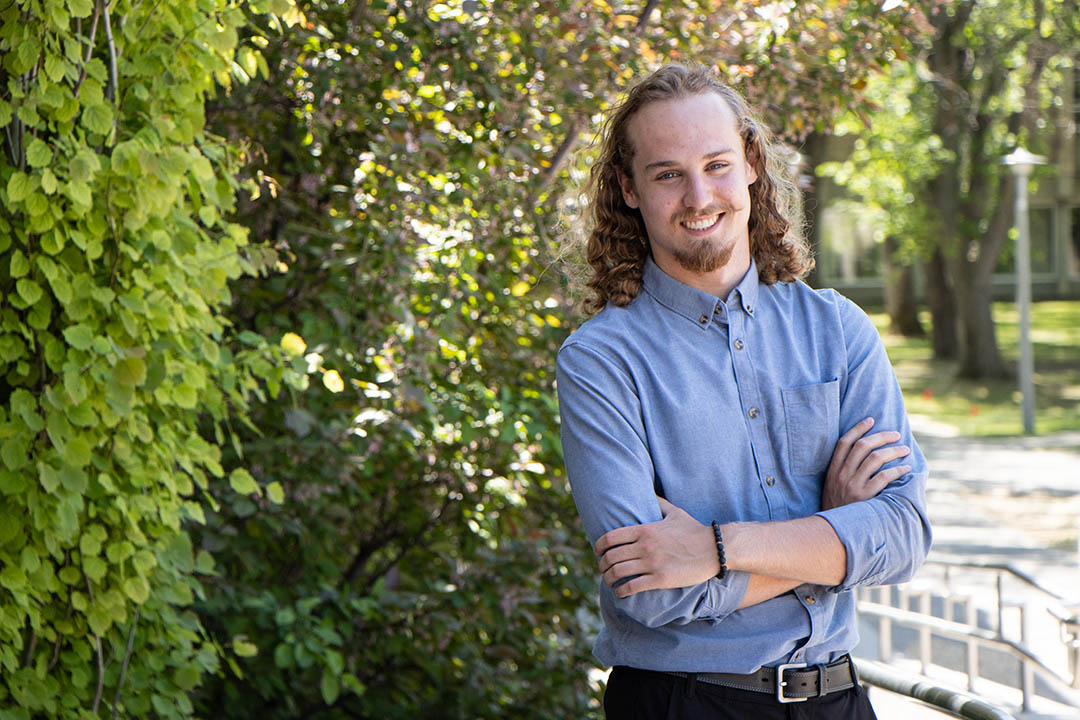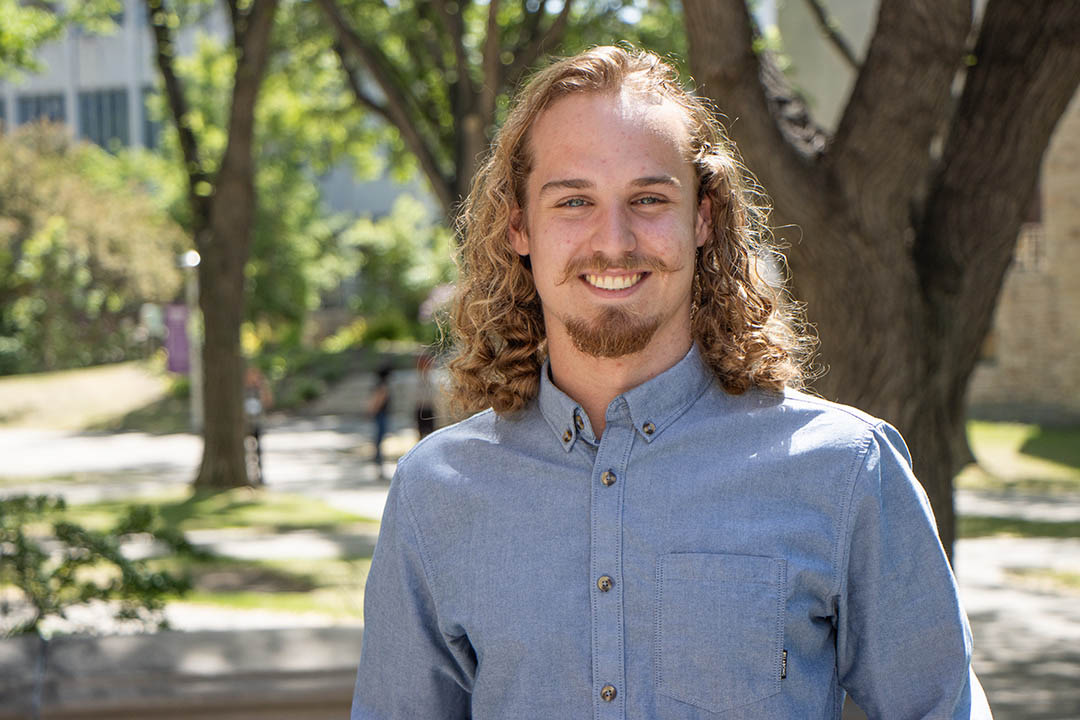
USask top graduate encourages students to step out of comfort zones
Biomedical neuroscience undergraduate student receives Governor General’s Silver Medal and the University Medal.
By Kristen McEwenLearning about the brain was always the coolest part of Grayson Tourney’s studies.
The College of Arts and Science student’s dedication and curiosity in neuroscience has led Tourney to receiving two prestigious awards at the University of Saskatchewan (USask) Spring Convocation.
Tourney will be recognized as the Most Outstanding Graduate in Biomedical Neuroscience. He will also receive the Governor General’s Silver Medal and the University Medal in BSc Biomedical Science Degree.
“It really is just an honour,” Tourney said about receiving two prestigious awards while graduating.
The Governor General’s Silver Medal is awarded at Spring Convocation to recognize the top graduate, or graduates, from an undergraduate degree program who have earned the highest cumulative percentage average. The award is one of the most prestigious honours that can be given to a student in a Canadian educational institution.
The University Medal in BSc Biomedical Science Degree recognizes the most distinguished graduate in a biomedical science degree program. Tourney achieved 97.34 per cent in the biomedical neurosciences honours program. His average for courses in his major was 97.5 per cent.
“Every day when I woke up, I was excited to go to class because I knew that there was going to be something new to learn and something to integrate into my life,” he said. “I’ve been very blessed with the professors I’ve had and the program that I’ve been able to take.”
“Being interested in your courses—it allows you to be curious while also wanting to work hard and stay disciplined when it’s something you really, really love doing.”
From Prince Albert, Tourney graduated from Ecole St. Mary’s High School looking to attend post-secondary closer to home. At the time, USask had recently introduced the revamped biomedical science (BMSC) program, which is offered jointly by the College of Arts and Science and the College of Medicine. Tourney was able to take his first year of classes from the Prince Albert USask campus.
“I took a couple of physiology courses and then I kind of fell in love with the neuroscience part of it. I decided that was what I was going to do,” he said. “I’m extremely happy that I’ve done this.”
Health, wellness and human body systems were always topics that interested Tourney. Through the BMSC program, he was heavily introduced to research and cutting-edge techniques in laboratories. He also learned how these techniques transferred to clinical settings.

Neuroscience appealed to Tourney because of the ongoing questions about the body that are yet to be answered.
“You know, you’re in these classes, and your profs are leading researchers in these fields and there’s still questions that they can’t answer,” he said. “So, if we’re going to figure this out together, where would we be going? It’s always a challenge. You can’t only be consuming the information, you need to always be thinking about, ‘Hey, what’s the next thing?’
“My year is going to be the next generation of scientists and we’re going to be the people that are leading the charge towards the next thing.”
In the fall, Tourney will begin medical school at the USask College of Medicine.
“I wasn’t 100 per cent sure if (medicine) was what I was going to do. But (I enjoyed) watching how the science manifests in people’s lives—and how it can affect people and have these positive outcomes as a result of fundamental studies in neuroscience.”
In his personal life, Tourney makes time for cycling, skiing, recreational football, dodgeball, volleyball and swing-dancing.
Tourney’s advice for post-secondary students is to encourage them to step outside of their comfort zones.
“(University is) a time for exploration,” he said. “I think that if everybody was just a little bit less concerned with doing what they’re supposed to be doing and a little more willing to take a risk, and to take yourself out of your comfort zone, then I think that a lot of people’s university experiences would be great. Mine definitely has been so.”
He hoped that other students could take some inspiration from his story, to choose a path they’re passionate about, instead of an easier path that could guarantee good grades.
“I’ve found that biomedical neuroscience has been extremely challenging,” he said. “There’s a lot of thinking. It does consume a lot of your life when you’re very dedicated to school. But it’s something that I love and it’s something that I’ve been curious about and something that I’ve been willing to give myself to do.
“Obviously, it’s worked out pretty good for me so far,” he added. “I hope that the message that it sends across to people is, ‘Do things you want to do, and you will be able to excel at them—and don’t sell yourself short.’”
Tourney emphasized that it’s not always possible to achieve the same grades and expectations that were set for high school. But working at something because of an interest will help achieve those goals.
“I didn’t go into my undergraduate degree hoping that I was going to have the highest average,” he said. “But I went into my degree knowing that I was going to try my best.”
Together we will support and inspire students to succeed. We invite you to join by supporting current and future students' needs at USask.
Article re-posted on .
View original article.
